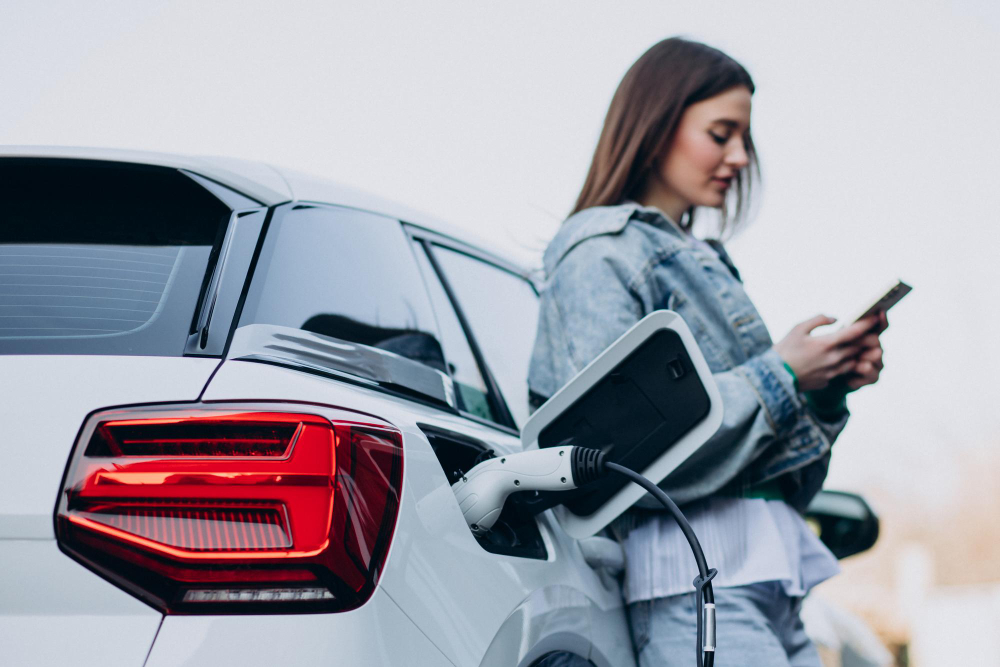EV Car Loans: What You Need to Know
Want to buy an electric car? The loan market can help you make it possible with favorable interest rate conditions.
Discover How to Finance Your Dream EV
Electric vehicles are no longer just a futuristic trend —they’re already a popular reality on the streets of America.
However, while the operating costs of an EV are generally lower than those of a gas-powered car, the purchase price remains relatively high.

If you’re thinking about buying an electric vehicle in the U.S., understanding how EV car loans work is essential to making a smart financial decision.
What Is an EV Car Loan?
An EV car loan is essentially a traditional auto loan, but specifically applied to the purchase of an electric vehicle — and it comes with its own set of features.
The buyer borrows money from a financial institution — such as a bank, credit union, or dealership — and repays it over a set period, typically between 36 and 72 months.
One key distinction between an electric vehicle loan and a standard auto loan is the unique incentives and conditions provided by certain lenders.
Due to the environmental and energy efficiency benefits of EVs, many U.S. financial institutions now offer more attractive financing options — including reduced interest rates and extended or more adaptable repayment terms.
Types of Financing Available
Banks and Credit Unions
These institutions typically offer competitive rates, especially if you have a good credit history.
Credit unions, in particular, may offer even better rates to their members, including specific programs aimed at financing green or sustainable vehicles.
Direct Financing Through the Manufacturer
Automakers like Tesla, Ford, and Hyundai often provide direct consumer financing, sometimes with promotional offers for their electric models.
These can include reduced interest rates or even deferred payment periods.
Dealership Financing
Many dealerships in the U.S. work with multiple financial institutions and can help facilitate the financing process for you.
While this is convenient, it’s important to compare offers — dealership rates are not always the best on the market.
Interest Rates and Credit Requirements
The interest rate you receive depends on several factors, such as:
- Credit Score
A score above 700 generally qualifies for better rates. Scores below 600 may make approval more difficult or come with higher interest rates. - Down Payment
Making a larger down payment can reduce the total loan amount and, in turn, the total interest paid. - Loan Term
Longer loan terms usually mean lower monthly payments, but they result in more interest paid over time.
Given the rising popularity of EVs, some financial institutions now offer lower interest rates specifically for electric vehicles.
Tax Incentives and Additional Benefits
Financing an EV in the United States can bring added advantages, thanks to tax incentives offered by the federal government and individual states.
Federal Incentive (Clean Vehicle Credit)
The IRS offers up to $7,500 in tax credit for the purchase of electric vehicles that meet the criteria under the Inflation Reduction Act (IRA).
The good news is that, starting in 2024, this credit can be applied directly at the point of sale, reducing the financed amount immediately.
State and Local Incentives
States like California, Colorado, New York, and New Jersey offer additional incentives, including purchase rebates, state tax credits, toll exemptions, and HOV lane access — even with only one person in the car.
These incentives can significantly reduce the total financing cost, making the investment in an EV even more appealing.
Is it worth financing an EV?
The answer depends on your financial profile, available incentives, and lifestyle. Here are some key factors to consider:
Advantages
- Lower fuel costs, with a significantly reduced cost per mile
- Less maintenance, since EVs have fewer moving parts
- Tax incentives and rebates
- Access to special financing with reduced interest rates
Disadvantages
- Higher upfront purchase price
- Uncertain resale value for some models
- Charging infrastructure still expanding in some areas
If you plan to keep the car for several years, the savings on fuel and maintenance may offset the higher initial investment, making EV financing a smart financial choice.
Tips for Getting the Best Loan
- Check your credit score before applying.
- Compare offers from multiple lenders.
- Consider making a larger down payment.
- Watch for promotional terms from automakers.
- Take full advantage of available tax incentives.





